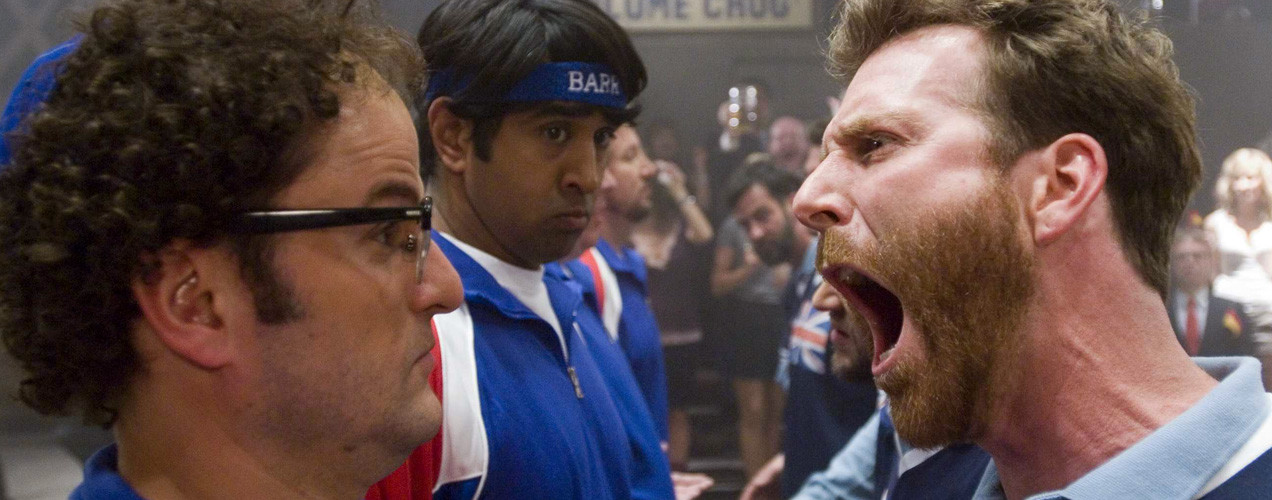2006 / Jay Chandrasekhar > After their hilarious misadventures in Super Troopers, I’ve come to expect a decent amount from the troupe at Broken Lizard. And while Beerfest is only a slight step above the somewhat misguided slashfest Club Dread, it still delivers on the basics of what it promises: beer, breasts and (male) bonding. What it lacks compared to its cops-brethren is a formidable opponent, without which a comedy of this styling can fall pretty flat. So, while Beerfest has the necessary ingredients for success, its mentally-diminutive German foes keep the film from holding its liquor until the very end.
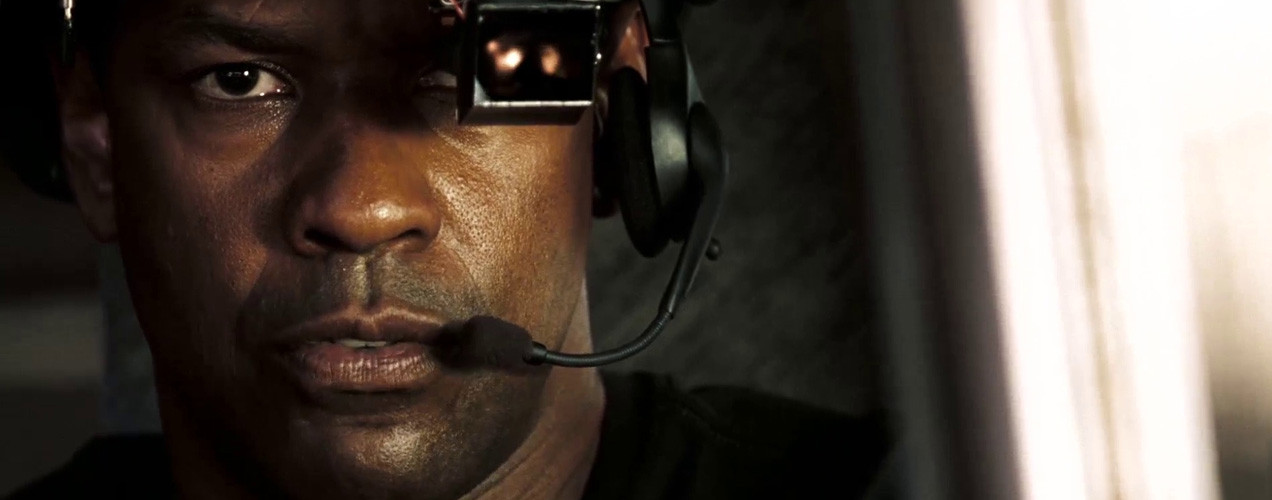
Deja Vu
2006 / Tony Scott > For a film that deals with folding the time-space continuum, there is great irony in its predictability. But there is credit to be given to Tony Scott for getting off the speed and rejoining the human race after the dismal Domino. The sober and tactical directing of Man on Fire is nearly back, but with an unusual dose of science fiction thrown in. More specifically, the Hummer on the highway is arguably one of the finest science fiction/action sequences ever put on film. If only that level of imagination were present throughout, it would have been a considerably more memorable adventure, plot holes or not.

Viva Erotica
1996 / Derek Yee > There’s something strangely charming about this satire about the Hong Kong Category III—or softcore porn—industry. It’s not the naive and sexy Shu Qi, although that certainly helps. And it’s not exactly Leslie Cheung’s pinning down of his semi-aloof failed-director-forced-to-go-softcore character either. It has more to do with Derek Yee’s ability to make fun of both himself as well as the industry as a whole while still trying to convey a serious message. It’s unfortunate that the production quality is a little subpar, and some of the comedy comes across a little forced. Otherwise, this is a Hong Kong gem that’s considerably more intelligent than its peers.
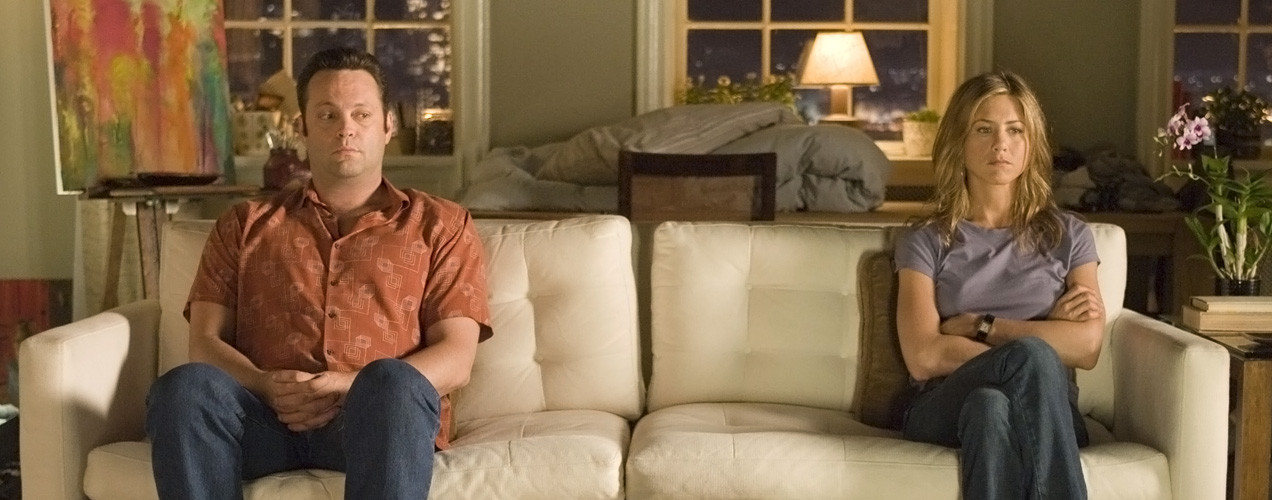
The Break-Up
2006 / Peyton Reed > Both Hollywood and the independent film market have generally been a little less than successful in dissecting relationships without pretension. Recent ventures Closer, Prime and the Korean Rules of Dating have been considerably more successful by taking a more mature perspective. While a valiant effort in the same vein, the problem with The Break-Up is its failure in keeping a straight face by delving into cheap laughs. Maybe this is an issue with the casting of Vince Vaughn, whose nature is befitting of such humor, but unfortunately it creates a lack of focus that slows the film down. Not only is the humor often forced, but the film also becomes predictable in its obstacles. The idea is there, the overall execution is good but some of the meat, in the end, is quite rotten and should be excised.

Babel
2006 / Alejandro Gonzalez Inarritu > Babel is an unfortunate failure on many parts: Samuel L. Jackson’s now-infamous “Crash Benetton” comment at Cannes is one of the simplest yet most accurate depictions of this film. It reeks of a lazily contrived storyline, hellbent on deriving some sort of bigger meaning through mishaps and the obvious. Wherein Amores Perros tried to be an objective narrator, Babel instead chooses to manipulate the action to the conclusion it sees fit. Of the four storylines, only the Japanese one holds a sense of legitimacy: It’s raw, driven with emotion and mystery and is ultimately utilized as a stopgap measure on the remainder of the mess.
The film is beautiful: For Rodrigo Prieto’s cinematography, one would hope that he gets another Oscar nod after last year’s unsuccessful bid with Brokeback Mountain. Undoubtedly, the two best performances of the film come from Adriana Barraza as the Mexican caretaker of Pitt’s children, and Rinko Kikuchi’s deaf-mute Japanese schoolgirl in need of male attention. The latter, especially, is a bewildering success, even stealing the limelight from veteran Japanese actor Koji Yakusho’s subtle and masterful acting. This is also Gael Garcia Bernal’s weakest to date.
To say the least, this worries me about Inarritu. Sadly, he reminds me of the path Guy Ritchie has taken, in constantly repeating an initially successful technique until it’s so over the top that it just loses all credibility (see Revolver). It will be good to see him pair up with a writer other than Guillermo Arriaga, who seems to be quite busy on his own these days after his falling out with Inarritu over the authorship of 21 Grams. The potential herein was immense, with a global concept that, to my knowledge, has never been attempted. Too bad, then, that it falls into its own trap, filled with cliches and one-sided social commentary on what, exactly, we’re not even sure.

Casino Royale
2006 / Martin Campbell > Casino Royale is the best Bond film since 1969’s On Her Majesty’s Secret Service. It has style, grit, heart and a story that actually works. All too often, I’ve found my attention fading by the 7th inning stretch. Chases and shootouts mean considerably less if there’s no plausible reason behind them. And by plausible, it’s not just how it affects the global power paradigm, of the good versus the bad, but rather how humane and reasonable the motivations are. And while I’m not a fan of Paul Haggis, maybe it was his screenwriting touch that made this happen. (One could probably argue that the subject matter kept his heavy-handedness in check, and if that’s true, I do look forward to him working on the next Bond film.)
As for Daniel Craig, the man is not Sean Connery. And that is exactly why he works. While Clive Owen would have been my first choice for Brosnan’s replacement, Craig has shown that he fits the bill, much like the tailored suit that Vesper Lynd prepares for him. His youth reflects appropriately in what is the beginning of 007. The screenplay supports him throughout, offering us more insight into his character than ever before. Eva Green is nearly perfect as Vesper Lynd, and arguably the best and most complex Bond girl since Jane Seymour’s Solitaire in Live and Let Die. Her onscreen chemistry with Craig is one of the key reasons the film works so well.
Casino Royale has me more excited about the future of James Bond than I’ve ever been. The style seems to be going the right direction, Daniel Craig is an excellent fit and they’ve finally taken to writing a properly thought-out script. It would be wonderful to see an arch-nemesis of sorts, similar to Blofeld, as well as further background on Bond himself. Either way, the next Bond, rumored to be a loose continuation of Casino Royale, is now on my calendar for 2008.
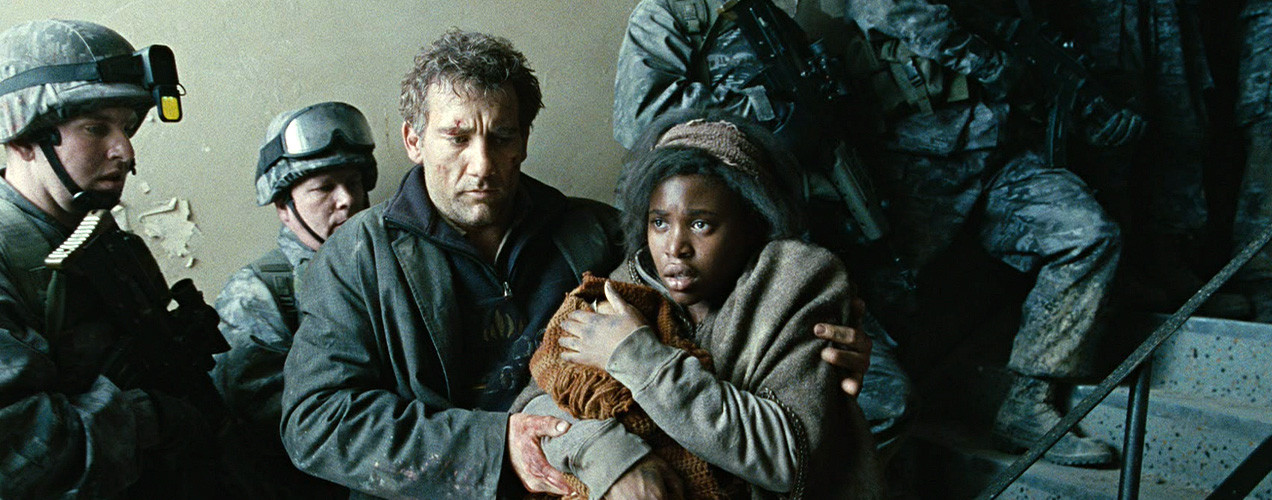
Children of Men
2006 / Alfonso Cuaron > Visually apt, Children of Men has some great sequences that keeps its dystopian world interesting, but the details are amiss. It’s unfortunate that Cuaron seems to have stripped away most of the novel’s intricate storyline, leaving a mostly superficial journey filled with one-sided social commentary and a large empty hole where there could have been substance. It’s especially shocking how weak the dialogue is, often spelling out the obvious to the viewer. Thankfully, Owen is solid, especially considering how little he had to work with.

Time
2006 / Kim Ki-duk > In what can arguably be called his safest work to date, Kim spews forth an uneven and somewhat marginalized social commentary on plastic surgery. Ironically, what seems to be the film’s strength is the underlying knowledge that Kim likes to surprise and taunt the viewer. Unfortunately, here he fails to meet the level of his previous successes. The characters are by nature weak, and their lack of proper judgment does little to motivate the viewer to care. By the end, the storyline remains shallow, the basic thesis remains overdone, and much of the rhetoric is too obvious for it to be impactful.

12 Angry Men
1957 / Sidney Lumet > An incredible cast led by the late Henry Fonda is undoubtedly the best reason to watch the original 12 Angry Men, a film that may feel outdated on the basis of its arguments. Similar to Rififi, it’s interesting to see screenwriter Reginald Rose’s systematic dissection of a jury’s decision-making process in the days before television shows like CSI and Law & Order. The point is not the final answer, but rather how things come to be. But for 12 Angry Men, it just feels a little too easy. It’s almost successful, conversely, as a tightly packed social commentary under the veil of a drama, but feels like it misses its target due to a storyline that seems contrived for the protagonist’s obvious benefit.
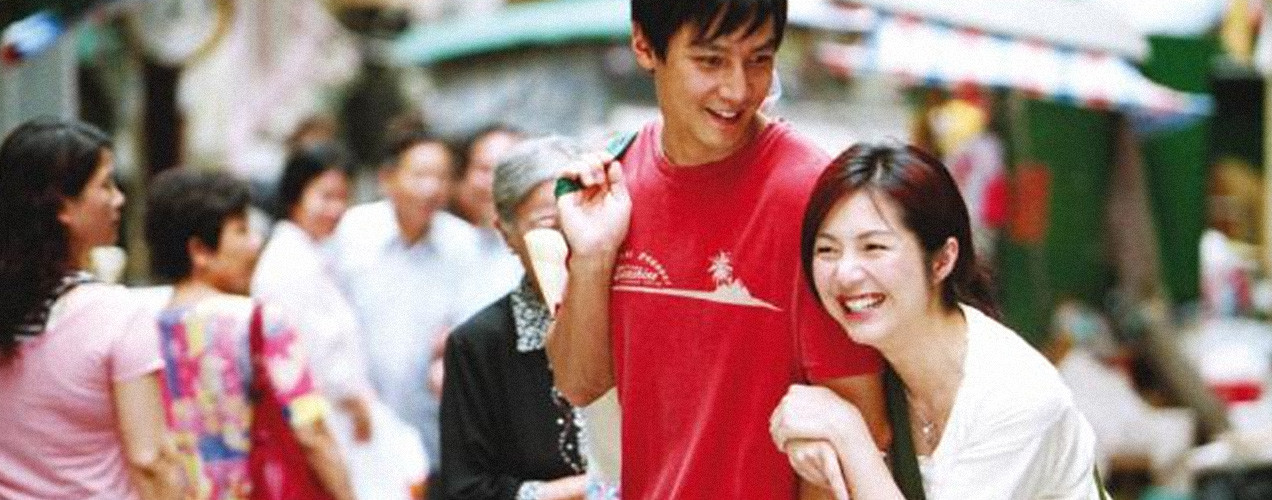
Drink, Drank, Drunk
2005 / Derek Yee > Romantic comedies from Hong Kong are arguably some of the silliest films in the world, and Derek Yee’s Drink, Drank, Drunk is no exception. However, somehow Daniel Wu’s acting is even sillier. Nowhere present is the level of emotion he showed in One Nite in Mongkok, and there is virtually no chemistry onscreen between him and Miriam Yeung. If it weren’t for the ending, which was a absolute surprise (although I imagine Yee always has at least one decent trick up his sleeves), the film would have been an absolute wash of two hours.

